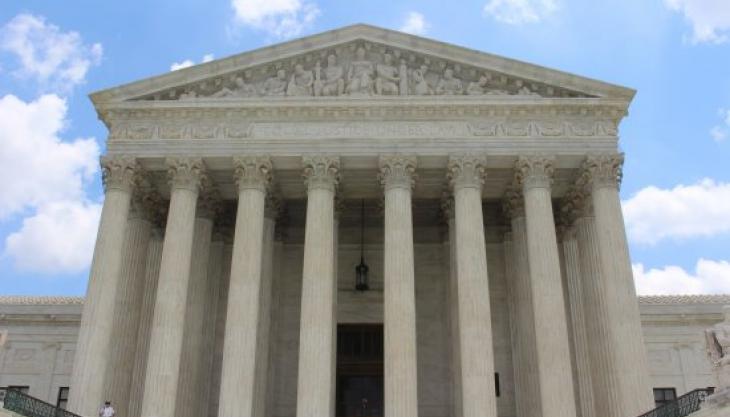More Judges Want to Forgive Student Loans in Bankruptcy
Submitted by Rachel R on Fri, 06/22/2018 - 10:36am

Bankruptcy judges may be loosening restrictions on undue hardship
Image via Unsplash
Student loan debt in America is a crisis of epic proportions. The total cost of this debt is now over $1.5 trillion. Individual debt coming out of college averages close to $35,000. For those who can afford their student loans, it's no big deal. For others, though, it can escalate into a full-blown financial crisis. Despite the debt spiral, there is some good news lately with court decisions, and it seems that restrictions are loosening on bankruptcy forgiveness of student debt. Here's what you need to know.
A brief history of student loans and bankruptcy
Before bankruptcy reform in 2005, student loan discharge in bankruptcy was more common. After the pivotal legislation, it became much tougher to discharge student loan debt in bankruptcy. In fact, the odds were so dismal that only 1% of bankruptcy filers who had student loan debt even asked for a shot at forgiveness.
The primary problem with forgiveness of student loans in bankruptcy is the concept of “undue hardship.” Federal law set undue hardship as the standard to determine whether federal student loans can be forgiven in bankruptcy. The problem is that the legislation fails to define undue hardship and left it up to the courts.
Over the past decade, the Brunner test determined the measure of undue hardship for a bankruptcy-related discharge of student loans. But now, things are looking up as judges have recognized the threat that student loan debt poses to consumers and the American economy. As a result, courts and judges are now likelier to apply a more relaxed undue hardship.
Relaxing the undue hardship standard
The Wall Street Journal interviewed 50 current and former bankruptcy judges and found growing concern over out-of-control student loan debt. One South Carolina bankruptcy judge, John Waites, said, “If the law’s not going to be improved by Congress, we have to help these young people who are drowning in student loan debt.”
Recent potentially precedent-setting case law occurred in Philadelphia when Judge Eric Frank discharged $30,000 of student debt, citing that a five-year period of undue hardship was adequate to justify forgiveness. Usually, debtors must prove undue hardship will persist for 20-25 years (loan life under income-driven repayment). Judge Frank found this frustratingly excessive and ruled accordingly.
The benefits of student loan discharge in bankruptcy
If you can get your student loans discharged in bankruptcy, it comes with one significant bonus - there are no income tax consequences. When debt is discharged outside of bankruptcy (usually because the creditor or debt collector has determined that they can't get money from the debtor), they issue a 1099-M.
A 1099-M is a form that triggers the IRS to consider income not recognized on your wage statements like your W2. For instance, if you owe $2,000 on a credit card bill and it's at the statute of limitations, VISA may decide they can't collect. They can write the debt off and send you a 1099 which increases your taxable income by that $2,000.
In bankruptcy, forgiven debts cannot be assessed on a 1099 and anything written off as part of your bankruptcy case will not carry any income tax implications. And remember, federal student loans have no statute of limitations so that means federal loan servicers can keep coming after you decades later even when you think they forgot about your school debt.
Schedule a student loan bankruptcy consultation
If you can't afford to repay your college debt, and your financial difficulties are long-term, bankruptcy might be the perfect solution for you. Don't assume you can’t win bankruptcy discharge of your student loans. You won't know the options available to you until you discuss your circumstances with a reputable and experienced bankruptcy attorney.
To find out more, read reviews from our satisfied clients then contact the Law Offices of John T. Orcutt. Call +1-833-627-0115 to schedule a free student loan bankruptcy consultation at one of our convenient locations in Raleigh, Durham, Fayetteville, Wilson, Greensboro or Wilmington.
Resource:
Debts Hurt! Got debt? Need help? Get started below!
Serving All of North Carolina
- Bankruptcy Attorneys Raleigh NC (North)
- Bankruptcy Attorney Fayetteville NC
- Bankruptcy Attorney Durham NC
- Bankruptcy Attorneys Wilson NC
- Bankruptcy Attorneys Greensboro NC
- Bankruptcy Attorneys Southport NC
- Bankruptcy Attorneys Wilmington NC
Bankruptcy Attorneys Raleigh NC (North)
6616 Six Forks Rd #203 Raleigh, NC 27615 North Carolina
Tel: (919) 847-9750

Bankruptcy Attorney Fayetteville NC
2711 Breezewood Ave Fayetteville, NC 28303 North Carolina
Tel: (910) 323-2972

Bankruptcy Attorney Durham NC
1738 Hillandale Rd Suite D Durham, NC 27705 North Carolina
Tel: (919) 286-1695


Bankruptcy Attorneys Greensboro NC
2100 W Cornwallis Dr. STE O Greensboro, NC 27408 North Carolina
Tel: (336) 542-5993

Bankruptcy Attorneys Southport NC
116 N Howe St. Suite A Southport, NC 28461 North Carolina
Tel: (910) 218-8682

Bankruptcy Attorneys Wilmington NC
116 N. Howe Street, Suite A Southport, NC 28461 North Carolina
Tel: (910) 447-2987
